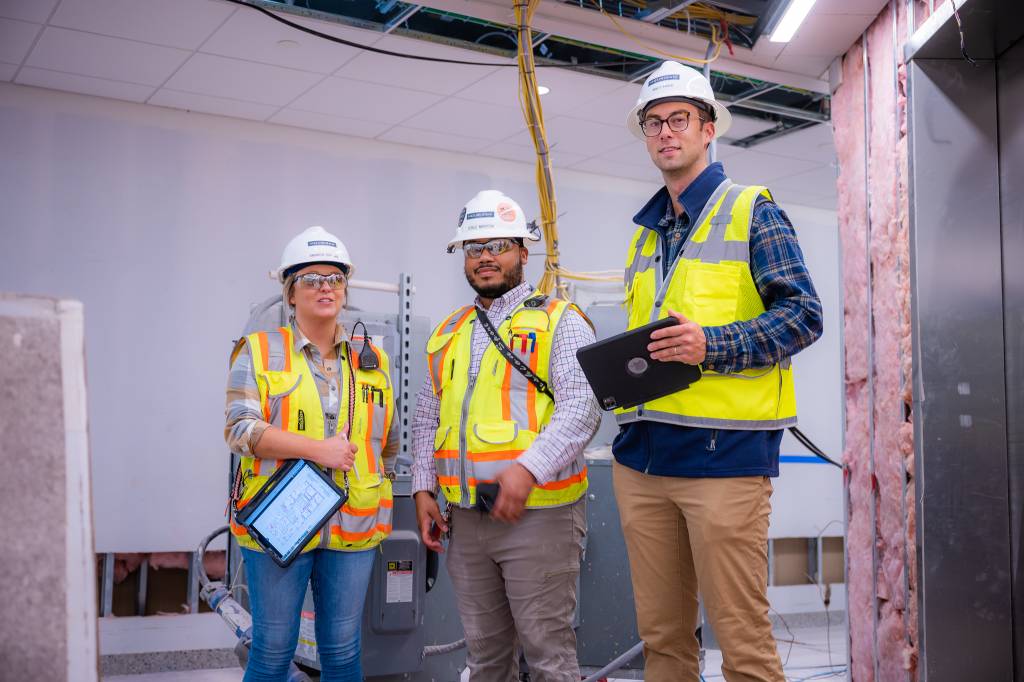DEI from the Ground Up: Crafting a Program for Lasting Impact
In an era that champions diversity, equity, and inclusion (DEI) as essential pillars of a progressive and thriving workplace, understanding the fundamental aspects of DEI is paramount. This encompasses grasping the significance of fostering a diverse and inclusive environment, comprehending the steps involved in constructing a robust DEI program, and recognizing how these principles apply on the job site. By delving into what DEI represents, why it holds such importance, how to build an effective DEI program, and the tangible impact of diversity in a work setting, we can embark on a journey to create a more equitable, supportive, and innovative work culture.
Why Is Workplace Diversity Important?
Diverse workplaces fuel creativity, promote equity, and provide employees with new opportunities. Additionally, research shows that diversity has fiscal benefits for organizations across the board. According to Forbes, “companies with a diverse workforce are 35% more likely to experience greater financial returns than their respective non-diverse counterparts.” The benefits of workplace diversity can be seen across the organization.

Amanda Brown, Terez Morton, and Brett Engle collaborating on their latest project.
Building a Diversity Program
When building your program, a start is by examining your demographic baseline, evaluating the data, and finding areas of underrepresentation or concern. Pay special attention to location, departments, and positions where it may happen most. Factor in individuals’ learning styles, personality types, and life experiences.
With an understanding of focus areas, a program can begin to evolve. Start by communicating expectations and organizational goals, hosting company trainings, and providing tools to your staff. The Virginia Center for Inclusive Communities is a great local resource that can help Virginia organizations get started.
Following company communications/trainings, provide opportunities for open dialogue and questions. For example, Hourigan’s “Listening Hour” where all are invited to come for open discussion on the DEI topics discovered. This allows personnel to ask questions and start conversations in a judgment-free zone.
Acknowledging holidays and celebrations across cultures can promote respect for all employees. Organizations can hold office-wide events to recognize such milestones.
Creating opportunities for people to connect further builds camaraderie among your employees and fosters greater inclusivity. Company socials, sports, and volunteer events are just a few ways leadership can encourage this. Connecting away from the everyday workload allows your team to focus on working together in a different environment to get a task done.
As with most new initiatives, communication is key to the success of your new DEI program. Talk about diversity with your employees and ensure they understand where the company stands on policies and communication efforts. Provide opportunities for feedback by appointing a person to field diversity issues or set up an anonymous suggestion box for employees to submit communication.
Supplier Diversity
Supplier diversity in the construction industry is a strategic approach that goes beyond conventional procurement. It recognizes the tremendous value of engaging with a diverse range of suppliers, including minority-owned, women-owned, veteran-owned, and other underrepresented businesses. By actively seeking out and partnering with diverse suppliers, construction companies contribute to economic growth in their communities and tap into a vast pool of expertise and innovation. Supplier diversity fosters competition, drives innovation, and enhances the overall quality of goods and services, ultimately benefiting both the construction company and the broader community. It reflects a commitment to leveling the playing field, promoting equity, and ensuring that opportunities are accessible to a wider spectrum of entrepreneurs. Supplier diversity in construction is not just a business decision; it’s a path to creating a more inclusive, resilient, and prosperous industry for everyone involved.
DEI Programs Fuel Organizational Success
Implementing a diversity program in the workplace can help employees feel welcome and more connected with other coworkers. When employees feel trusted and appreciated, productivity tends to increase. Starting a diversity program in the workplace doesn’t have to be difficult. It begins by recognizing your employee’s unique attributes and building a team with mixed dimensions and culture.
The journey towards building a more diverse, equitable, and inclusive construction industry is both an imperative and an opportunity. Embracing diversity on the job site enriches our workforce, drives innovation, and strengthens the fabric of our organization. Creating a comprehensive DEI program is a tangible commitment to these values, demonstrating our dedication to fostering an environment where everyone’s voice is heard, and everyone has a chance to succeed. By extending these principles to our supplier relationships, we contribute to a thriving ecosystem of businesses while reinforcing our dedication to fairness and inclusivity. As we continue to make progress in championing DEI, we propel our industry forward, transforming challenges into opportunities and collectively shaping a future marked by unity, excellence, and positive change.
Previous Post Next Post